Table of Contents
- 1 Overall Opinions on the Book
- 1.1 Here are some potential questions that I have asked to myself and wondered to find the answers on:
- 1.2 Introduction
- 1.3 Chapter
- 1.4 Hiduism Requires Diversity
- 1.5 Chapter 2
- 1.6 Hinduism Accepts And Respercts All Other Religions
- 1.7 Chapter 3
- 1.8 Hinduism’s Ascendancy
- 1.9 Chapter 4
- 1.10 A Hindutva Administration Leads To Violence
- 1.11 Chapter 5
- 1.12 The Bjp’s Attack On Tolerrance
- 1.13 Chaptur 6
- 1.14 Hindutva Must Be Rejected In Order To Achieve Peace
- 1.15 Chaptur 7
- 1.16 Conclusion
Overall Opinions on the Book
Here are some potential questions that I have asked to myself and wondered to find the answers on:
- What personal experiences led the author to write this book, and how does he explain his connection to Hinduism?
- How does the author define Hinduism, and what are some of the key concepts and beliefs he discusses in the book?
- What are some of the challenges facing Hinduism in the modern world, and how does the author propose addressing them?
- How does the author respond to criticism of Hinduism, such as accusations of caste discrimination and religious intolerance?
- What does the author believe are the benefits of Hinduism, and how does he think it can be beneficial for individuals and society as a whole?
- How does the author contextualize the Hinduism within the Indian society and its political, social and cultural scene?
- What are the author’s thoughts on the relationship between Hinduism and other religions, particularly in India and the greater South Asian region?
- How does the author compare and contrast Hinduism with other religions and belief systems?
- What is the author’s perspective on the role of Hinduism in contemporary India?
- What is the author’s opinion on the future of Hinduism and its potential impact on the world?
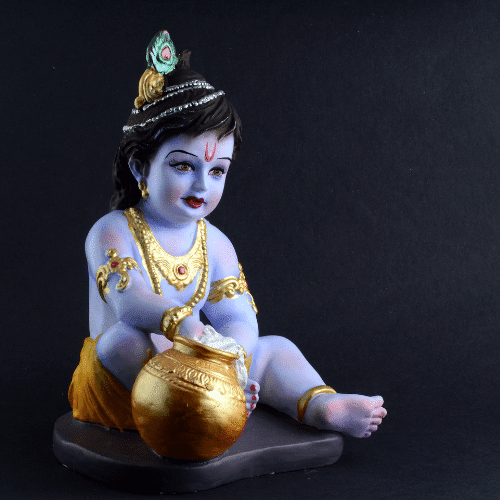
Religion….Why I Am a Hindu is a comprehensive book about one of the world’s oldest and greatest religions, written by one of India’s most esteemed public thinkers.
He begins his exploration into Hinduism with an introspective look at his own religious beliefs. He discusses the various influential Hindu figures such as Adi Shankara, Patanjali, Ramanuja, Swami Vivekananda, Ramakrishna Paramahamsa, and many more.
He investigates the most influential schools of thinking within Hinduism (such as the Advaita Vedanta). With compassion, he delves into the “Hinduism of habit” practiced by common believers and explains key features and concepts of Hindu philosophy like the Purusharthas and Bhakti in straightforward terms.
He examines the various expressions of modern Hindu nationalism, including the use of violence in the name of religion by right-wing groups and their followers.
He examines Hinduism, details its historical development, and elaborates at length on the ideas of Deen Dayal Upadhyaya, the movement’s primary ideologue.
He is scathing in his criticism of religious extremists he calls “bhakts,” and he is firm in his opinion that the loss of power to religious “fundamentalists” will threaten all that makes India unique and special as a culture and country.
However, he also argues that the fact that Hindus make up the majority is what has allowed India to remain a plural, secular democracy.
Why I Am a Hindu is a groundbreaking and creative masterpiece that will be read and discussed for years to come.
To learn everything there is to know about Hinduism, you need look no further than this book.
Information, politics, and Hindu political and ideological ideology abound in it. This book has three distinct sections. There’s significance in each individual section since it sheds light on a particular facet.
The book opens with the author’s religious beliefs in Hinduism; in these, the reader may see many reflections of the author’s early life. He investigates the most influential schools of thinking within Hinduism (such as the Advaita Vedanta).
He typified the Hindu belief that one’s faith is a very private issue, and that prayer is an exchange between the believer and the representation of God that the believer chooses to honor.
The author discusses the lives and teachings of Shankara, Ramanuja, and Vivekananda. He also discusses the beliefs and mythologies associated with different deities.
the legend of Ganesha, the tale of Maa Durga, the legend of Shiva, and others. He elaborated on a few Gita, Veda, and shloka passages. He expertly guides the reader through his personal thoughts and academic references concerning Hinduism.
Hinduism encourages introspection as a means of uncovering one’s own unique set of truths about the world and one’s place in it.
This book extols the virtues of Hinduism. The beginning of the book was my favorite. The novel has strong language. Absolutely fantastic vocabulary.
Beautiful passages, phrases, and verses can be found throughout this book. Read it if you want a novel that will keep your attention. Anyone reading this can easily become engrossed. There is nothing else that could have been included in that book that wasn’t there.
A religion for the 21st century and a religion without basics are just two of the ideas the author has briefly presented. When compared to Hinduism, I found the politics to be less appealing.
For some reason, I felt an instant bond to it. Everything in this book, from religion to politics, is well-written and organized, giving the reader a deep understanding of Hinduism and giving them pride in their heritage as Hindus.
Every word of the book proves to be true upon closer inspection. Good job writing up the myths, the politics, and the beliefs. This novel has a lot going for it. There is a wealth of insight in his writings that encourages readers to shift their frame of reference. Writers often find common ground with Tharoor because of his precise, persuasive, and engaging prose.
Every Indian should read it to gain insight into the true nature of Hinduism. A book like this can really open your eyes. In the realm of nonfiction, it is a truly outstanding addition. Simply put, Why I Am a Hindu is a masterpiece.
Even though I needed more than four days to finish this book, I recommend it.
Background information on the writer:
Author, politician, and ex-foreign government servant Shashi Tharoor has done it all. Former Minister of State for Human Resource Development and Minister of State for External Affairs in the Government of India, he is currently serving as a member of Parliament for a second term representing the Thiruvananthapuram constituency and as Chairman of the Parliamentary Standing Committee on External Affairs.
He worked with the UN for nearly three decades, first as a peacekeeper, then as a refugee worker, and last as an administrator under Kofi Annan as Under-Secretary-General.
Introduction

Just how important is religion in your daily life? That which gives our lives significance is often something quite profound and individual. Others, however, view it as something to be avoided at all costs.
Both reactions to religion are acceptable, and that’s why we have secular institutions like schools and governments that aren’t tied to any particular faith and don’t try to impose their beliefs on others. And whereas secularism is often viewed as being at odds with religion in Western culture, it serves a slightly different purpose in India.
The people of India, whether they identify as Hindu, Buddhist, Muslim, or Sikh, all enjoy the freedom to practice their faiths without persecution or discrimination.
Also, that lifestyle does sound quite ideal, doesn’t it? To counter this, Shashi Tharoor claims that the Hindutva movement, which is currently in power in India, is actively working to destroy the peaceful coexistence that has existed there in the past.
The Hindutva movement, which is the official philosophy of India’s ruling party, the BJP, seeks to redefine Indian national identity by excluding everyone who does not consider themselves to be Hindu.
According to Tharoor, this isn’t what Hinduism is about, and Hindutva is an abuse of Hindu principles. Through a reflection on his own religious path, Why I Am a Hindu is an attempt to restore the tolerance, variety, and openness that is fundamental to Hinduism.
Chapter
Hiduism Requires Diversity
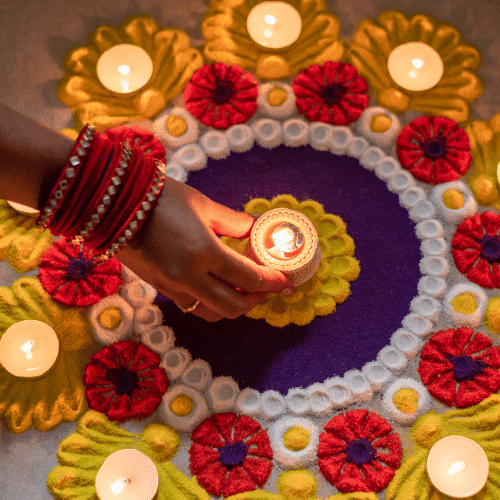
There is something special about each and every religious tradition. However, many of the world’s most widely practiced religions share core tenets in common with one another.
Though they may vary in detail, all three of these faiths have the central tenet that God exists and is or was a human being. These faiths hold that their deity is the sole genuine god, and as such, adherents must deny the validity of all other religions.
Nevertheless, Hinduism is based on a fundamentally different set of principles. Hinduism, in contrast to the aforementioned religions, is a pantheistic faith, meaning that its adherents believe in a wide variety of deities.
Every Hindu has the right to pick and choose which deities they honor, which scriptures they study, and when and where they worship. Based on these key concepts, Hinduism can be described as a religion that welcomes people of all backgrounds and beliefs.
The ultimate objective of every Hindu is to realize their true nature and become one with Brahman, an androgynous being who personifies truth. However, the path to this awareness is intensely individualized and unique to each individual believer.
As we have seen, Hinduism is inherently inclusive because of its deep respect for individuality and unique experience. In fact, it’s so exceptional that it stands out in a different way from all the rest. The Hindus are unique among the religions we’ve covered since they not only accept the legitimacy of other belief systems but are also open to dialogue with those who hold them.
Chapter 2
Hinduism Accepts And Respercts All Other Religions

One of the major aspects that defines Tharoor’s religious experience is a commitment to religious pluralism. One of his most formative childhood experiences was learning that the sacred texts of other religions, such as the Torah and the Quran, were equally holy to the Hindu scriptures.
He was convinced that even if these texts advocate for diverse belief systems, they all have something to teach us about how to become better people and how to grow spiritually. As a result, Tharoor not only gained a deep appreciation for the value of books as a means to enlightenment, but also for the religious traditions of other peoples.
He also claims that he prays for forgiveness every time he accidently damages a book by stepping on it or dropping it.
As a matter of fact, this openness to new knowledge and faith is ingrained in every facet of Hindu practice.
Hinduism makes a concerted effort at togetherness and refuses to condemn other faiths as enemies of their own as Buddhism and Sikhism spread throughout India, garnering followers from a wide range of socioeconomic backgrounds.
Hinduism seeks common ground with Sikhism and Buddhism, rather than emphasizing their distinctions, and has discovered that the three faiths share some commonalities.
Sikhs have a strong conviction in the equality of all individuals and place a high value on actions of love towards others and their god.
Sikhs and Hindus can accept and appreciate one another because their religions share many core beliefs. To a similar extent, Hindus are interested in learning about and embracing the more emotional side of Buddhism, while Buddhists value and admire the rationality and dedication of the Hindu faith.
Chapter 3
Hinduism’s Ascendancy
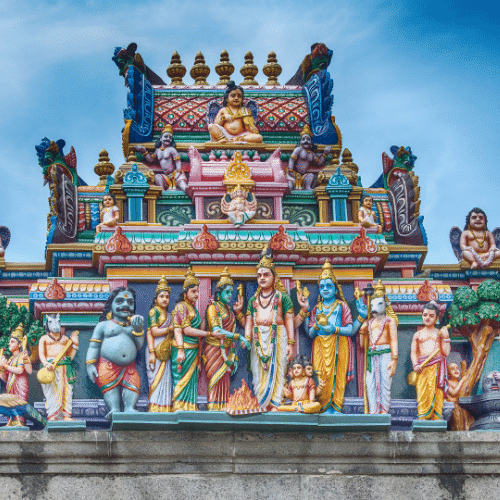
Now that you have this background, you can understand how Hindutva conflicts with the inclusiveness of authentic Hinduism. Where did it come from, and why did its philosophy emerge?
Since this is so important to Tharoor in terms of eliminating Hindutva, he devotes an entire chapter to it. In light of this, let’s examine some facts. We are all well aware that the Bharatiya Janata Party (BJP), also known as the Indian People’s Party, is currently in power in India and that Hindutva is the party’s official philosophy.
And although though they have only been in power since 2014, in 1989 they declared Hindutva to be the state religion.
But what does this actually entail? So, to begin, Hindutva simply means “Hindu-ness.” Rather than claiming to be Hinduism itself, it aims to distill what its adherents regard as the religion’s basic tenets.
Vinayak Damodar Savokar, in his book Essentials of Hindutva published in 1923, advocated this concept. Savarkar’s manifesto made the case that Hindus were India’s original inhabitants, and as such, the subcontinent rightfully belonged to Hindus alone.
This rang true with many nationalists, like MS Golwalkar, a far-right thinker whose We: Our Nationhood Defined (1939) claimed that nationality is based on culture rather than place of birth.
He elaborated on Savarkar’s arguments by saying that even if someone had undeniable Indian ancestry, they are not “really” Indian because they are not Hindu.
An Indian who practices Islam may live inside the same borders as Hindu Indians, but he would not consider her to be a “genuine” Indian because she does not share in Hindu culture. Although this stands in stark contrast to the inclusive nature of Hinduism, the ideology of Savarkar and Golwalkar’s writings remain important tenets of the BJP to this day.
You may have noted that Hindutva’s exclusivist and nationalistic ideas are very similar to those of Nazi philosophy, and you would be correct in assuming that Hindutva is significantly influenced by Nazi principles.
In fact, Savarkar contributed the prologue to a book by Indian Nazi Savitri Devi, and Golwalkar shared his views on the subject. In a similar vein, Golwalkar infamously advocated for a “Hindu Holocaust” in India in order to rid the country of non-Hindus.
With this in mind, it’s not hard to see how Hindutva can lead to acts of violence, hatred, and exclusion. Let’s examine what happens in the national and local spheres when a country’s ruling party openly adopts Hindutva as its national philosophy.
Chapter 4
A Hindutva Administration Leads To Violence
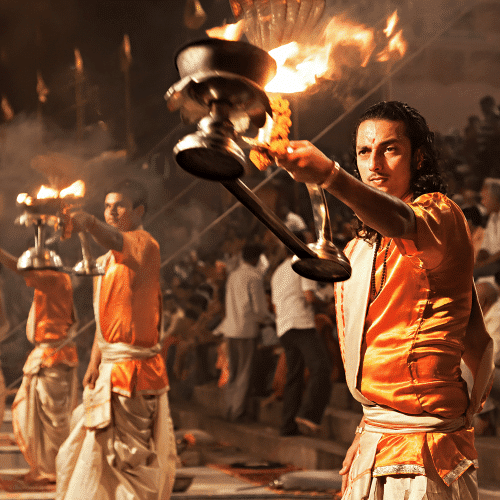
The chapter’s title may not be shocking, but what you’ll learn about Hindutva violence in this section will be. That’s because choosing to be a Muslim under a Hindutva regime is a calculated risk with potentially fatal consequences.
Yogi Adityanath, a member of the Bharatiya Janata Party (BJP) and the Chief Minister of the Indian state of Uttar Pradesh, has been instrumental in normalizing and even promoting Islamophobia at the national level.
Adityanath led a radical hate group whose main mission was to physically attack Muslims before he was elected to public office.
After falsely accusing a well-known Muslim bollywood star of being a terrorist because of that person’s faith, he was convicted and served time for inciting religious hatred. Indeed, in 2017, he attempted to implement a ban prohibiting Muslims from entering India, following in the footsteps of Donald Trump.
Because of his actions, India is currently experiencing a profound and contentious transition. There has been an increase in hate crimes specifically directed at Muslims, but also any group or institution perceived to have ties to Islam. A fight against Muslims is often a war on Indian heritage because Indian culture is a magnificent fabric made up of numerous religious and cultural strands.
The Taj Mahal’s deterioration is an especially upsetting example. Due to his position as chief minister of Uttar Pradesh, where the monument is located, Adityanath has refused to pay for its maintenance, citing the monument’s Muslim background as the reason.
Consequently, one of the seven wonders of the world is already in deterioration, and its collapse is already so serious that American basketball player Kevin Durant sparked a little worldwide scandal when he brought attention to the tragedy during a visit in 2017.
Under a Hindutva regime, however, national monuments aren’t the only things that are damaged. Multiple cities’ social and economic stability have been jeopardized due to the government’s deliberate indifference.
Visitor spending has the potential to revitalize the economies of several cities, including Agra, which falls within Adityanath’s ambit. But without government support, they can’t afford the fundamental upkeep that would make their city a destination worth visiting.
Tharoor has noticed that the BJP is trying to discourage people from visiting Muslim places by excluding the Taj Mahal and Agra from new tourism brochures.
Chapter 5
The Bjp’s Attack On Tolerrance
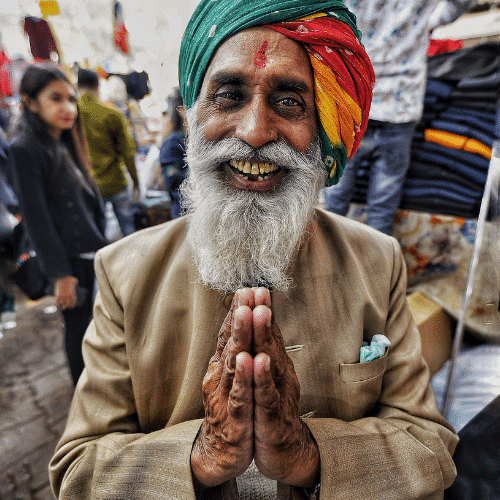
As one sad example, Tharoor claims that the “People’s Republic of India” doesn’t care about its citizens’ well-being by actively discouraging travel. Because the BJP is deliberately obstructing social progress by, among other things, abusing individuals and depriving cities of funding.
Despite Hinduism’s well-known celebration of sexual diversity, the BJP openly rejects symbols of tolerance like the half-male, half-female Ardhanarishwara and works to eliminate tolerance for LGBT people.
As just one example, Tharoor opposes the return to antiquated laws like those that forbid gay marriage. Although he attempted to have this statute changed in parliament, he was greeted with hostility and ultimately had his proposal rejected.
Tharoor argues that the widespread adoption of Hindutva ideology is to blame for the country’s inability to question the present quo or consider alternative, more progressive futures.
The same can be said for the debate over cows that has raged across the country for years. While Hindus have traditionally avoided eating beef out of respect for the sacred status of cows, adhering to Hindu principles would mean that this option may be made on an individual basis if so desired.
The BJP, however, is working to do away with individual choice in this area by passing laws regulating everything from what individuals can eat (by making it illegal for anyone in the country to eat beef) to what farmers can do with their cows.
Over 136 people have been killed due to legal conflicts concerning cows, including a Kashmiri Muslim teenager of 16 who hitchhiked using a cattle transport truck, further fueling the controversy. These kinds of violence have only gotten worse since the BJP came to power, demonstrating the dangers faced by all citizens when bigotry and the law collide.
Chaptur 6
Hindutva Must Be Rejected In Order To Achieve Peace

If you, like Tharoor, have reached the conclusion of this review and found yourself asking what can be done to eliminate prejudice and return to the inclusive tenets of authentic Hinduism, the good news is that the answer is fairly straightforward.
After comparing Hindutva to Hinduism, Tharoor believes that Hindus ought to reject the evils of Hindutva in order to reclaim the pride and truth of their faith. Though he takes pride in his Hinduism and his Indian heritage, Tharoor claims that Hindutva has nothing to offer in terms of which to be proud.
Tharoor draws attention to crimes such accusations Hindu men have raped Muslim girls or cheered as individuals of different religions are burned alive out of fear for the collapse of his country and the distortion of his faith.
Tharoor worries that young people would learn that violence and prejudice are the legacy of Hinduism if Hindutva gains power, which is incompatible with a religion that values respect, tolerance, and inclusivity. According to him, the only way forward is to recognize that Hinduism is under assault from inside and is being perverted into something poisonous.
The Hindu faith has a rich history dating back four thousand years, and its adherents have plenty for which to be proud. They, too, have many reasons to be proud of India and her traditions.
The pride of a nation or a religion, however, should never be based on the violence or exclusion of others, as Tharoor insists. Instead of embracing the poisonous ideology of Hindutva, Hindus should take pride in their long-standing dedication to pluralism.
Chaptur 7
Conclusion
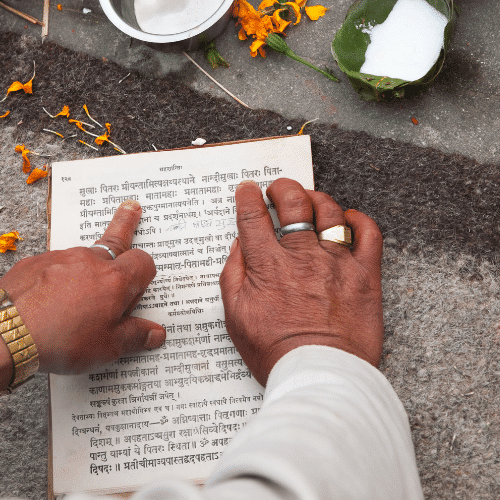
Tolerance, variety, acceptance, and respect for various beliefs are at the heart of Hinduism, making it a lovely religion. That’s why people like prominent politician Shashi Tharoor find so much fulfillment in their religious practices; it’s a highly personal and spiritual experience.
But Tharoor wants readers to know that fanatics and Nazi sympathizers have co-opted Hinduism, and that Hindutva is nothing but a distortion of Hinduism. This is why it needs to be fought against and eradicated so that people all around the world can appreciate the harmony and openness of Hinduism.
Read more book summaries: https://psytify.com/conclusions-onwhy-buddhism-is-real/
Buy this book @ Amazon: ‘‘Why I Am a Hindu”(Religion)

